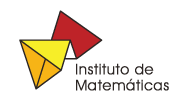Seminario conmemorativo del Año Internacional de la Estadística en el Instituto de Matemáticas
| Cuándo |
28/11/2013 de 13:00 a 14:00 |
|---|---|
| Dónde | Salón de Seminarios Graciela Salicrup, Instituto de Matemáticas, UNAM |
| Nombre | Géronimo Uribe |
| Agregar evento al calendario |
|
Anscombe’s seminal paper [1] on limit theorems for randomly indexed processes marks a giant step forward in the sense that no assumption about independence between the process under investigation and the indexing process was assumed. A direct proof for random walks was given by Rényi [7], the essential point being that he verified that the Anscombe condition was “automatically” satisfied in that setting.
In this talk I will discuss the importance of Anscombe’s theorem and mention some of its impact, mainly on stopped random walks, thereby illustrating the beauty, efficiency and applicability of, what might be called, the Stopped Random Walk-method. To some extent it will be a trip through my own history in the area, which began with [2] and has continued along i.a., [6], [3], [4], [3], [5], to .....
References
[1] Anscombe, F.J. (1952). Large sample-theory of sequential estimation Proc. Cambridge Philos. Soc. 48, 600-607.
[2] Gut, A. (1974). On the moments and limit distributions of some first passage times. Ann. Probability 2, 277-308.
[3] Gut, A. (1988). Stopped Random Walks, Springer-Verlag, New York. 2nd Ed. (2009).
[4] Gut, A. (1992). First passage times of perturbed random walks. Sequential Anal. 11, 149-179.
[5] Gut, A. (2012). Anscombe’s theorem 60 years later. Sequential Anal. 31, 368-396.
[6] Gut A. and Janson, S. (1983). The limiting behaviour of certain stopped sums and some applications. Scand. J. Statist. 10, 281-292.
[7] Rényi, A. (1957). On the asymptotic distribution of the sum of a random number of independent random variables. Acta Math. Acad. Sci.Hungar. 8, 193-199.

